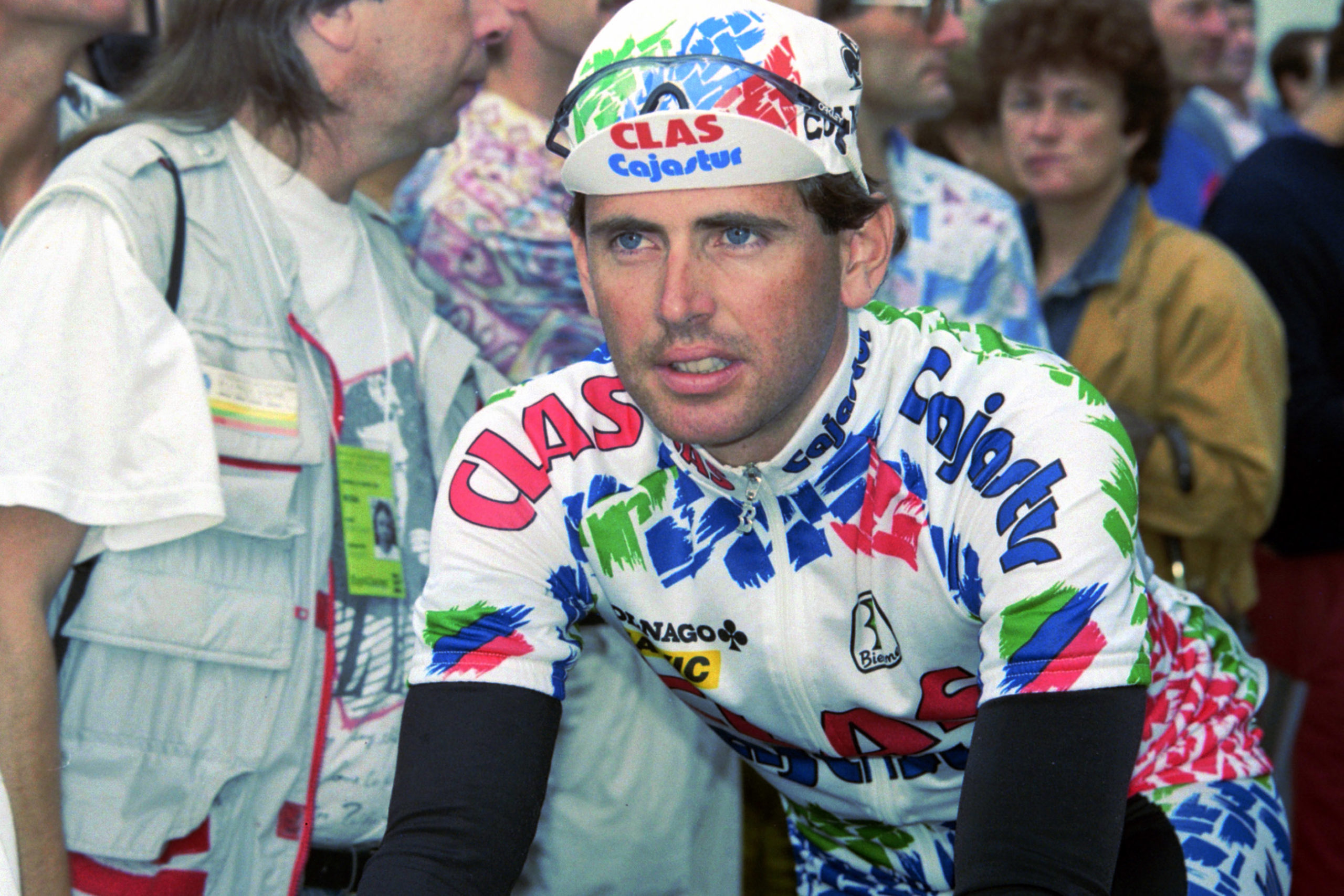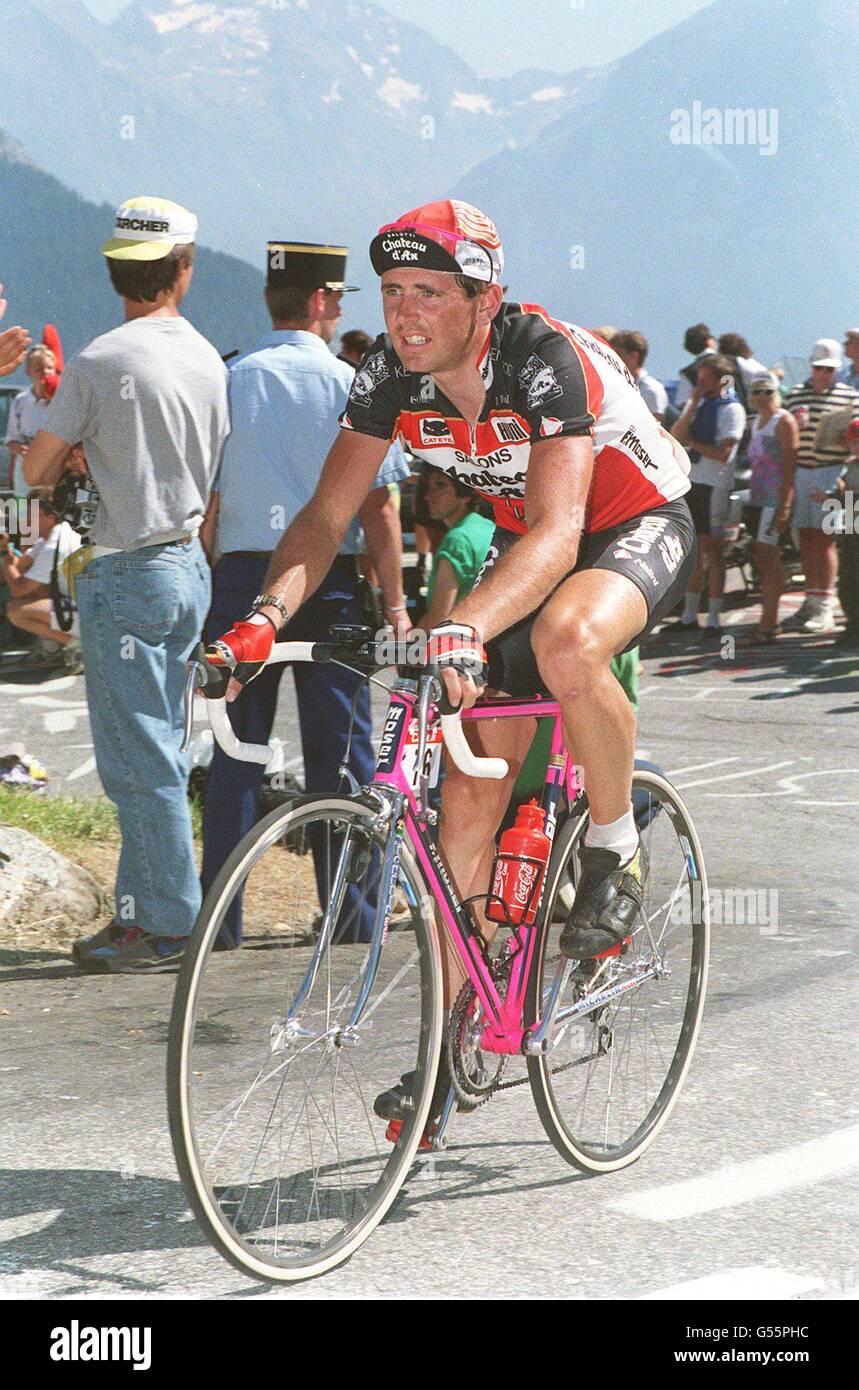Tony Rominger: The Cyclist Who Conquered The 90s
Could a Swiss cyclist, born in Denmark, truly dominate the world of professional cycling, challenging the giants of the sport and etching his name into the annals of history? The answer, as the records unequivocally show, is a resounding yes, and that name is Tony Rominger.
The late 20th century witnessed a golden age of cycling, a period of intense competition, legendary rivalries, and the emergence of extraordinary talents. Among them, Tony Rominger stood out, not just for his exceptional physical prowess but also for his tactical acumen and unwavering determination. He was the "Swiss" who arrived to lead a team, ultimately taking it to the highest level. Rominger's story is a compelling narrative of ambition, perseverance, and the relentless pursuit of excellence. His name became synonymous with grit, skill, and an indomitable spirit that defined him as one of the best cyclists of the era.
| Full Name | Tony Rominger |
| Date of Birth | March 27, 1961 |
| Place of Birth | Vejle, Denmark |
| Nationality | Swiss |
| Height | 1.83 m (6 ft 0 in) |
| Nickname | "The Mouse" |
| Cycling Specialty | Time Trialing, Climbing |
| Professional Career | 1985 1997 |
| Teams | Peugeot (1985-1986), Chateau d'Ax (1987-1988), Chateau d'Ax-Salotti (1989), Festina (1990-1991), CLAS-Cajastur (1992-1993), Mapei-CLAS (1994-1995), Mapei-GB (1996-1997) |
| Major Wins | Vuelta a Espaa (1992, 1993, 1994), Giro d'Italia (1995), Vuelta al Pas Vasco (1992, 1993, 1994) |
| Languages Spoken | German, French, Italian, English, Spanish |
| Post-Cycling Career | Sports Agent |
| Reference | ProCyclingStats |
Born in Vejle, Denmark, on March 27, 1961, Rominger's early life was marked by a cross-cultural upbringing. His mother was Danish, and his father, Swiss. This duality would later shape his perspective and contribute to his adaptable nature, a quality that served him well throughout his cycling career. His family moved to Switzerland, where he initially pursued a career as an accountant before the allure of professional cycling captured his heart. He started his professional career in 1985 for the Peugeot team.
Romingers transition into cycling wasn't immediate. It was a gradual process, one that saw him initially drawn to the sport due to a competitive spirit. His introduction to cycling came relatively late, spurred by a challenge with his brother. This late start belied his natural talent and, perhaps, fueled his determination to catch up to his competitors. Romingers approach to cycling, and indeed life, was one of meticulous preparation, unwavering focus, and a profound understanding of his own capabilities.
The Swiss cyclist quickly gained recognition for his climbing abilities and prowess in time trials. He wasn't just a climber; he was a formidable all-around rider. He possessed the stamina to compete in grand tours and the tactical intelligence to outmaneuver his rivals. He would eventually become an exceptional all-rounder. He was known for his cautious and modest demeanor, earning him the nickname "The Mouse."
Rominger's rise coincided with the emergence of another cycling icon, Miguel Indurin. The two engaged in a fierce rivalry that captivated the cycling world. While Indurin was the dominant force in the Tour de France, Rominger was a constant threat in the other Grand Tours. The rivalry between Rominger and Indurin added a layer of drama and intrigue to the sport, pushing both riders to their limits and providing fans with unforgettable moments. The battles between these two titans of the sport became a symbol of the era.
His finest achievements, as a testament to his skill and endurance, included winning the Vuelta a Espaa three consecutive times (1992, 1993, and 1994) and the Giro d'Italia in 1995. Rominger didn't just win these races; he dominated them, displaying a level of consistency and resilience that set him apart. His victory in the 1995 Giro d'Italia, in particular, showcased his complete mastery of the sport. These victories cemented his legacy and showcased his consistent performance.
One of Rominger's remarkable feats was setting the Hour Record in 1994. In the world of cycling, the Hour Record is one of the most revered and demanding achievements, requiring a unique combination of power, endurance, and aerodynamic efficiency. Rominger's pursuit of the Hour Record was a testament to his unwavering dedication to pushing the boundaries of human performance. He rode 55.291 kilometers (34.356 mi) in one hour, on the velodrome in Bordeaux. This was not only a display of physical prowess but also a demonstration of his dedication and technical innovation, which he would later use for his other achievements.
Rominger's talent wasn't just about physical strength; he was also a master tactician. He understood the intricacies of each race, the importance of conserving energy, and the art of seizing opportunities. He knew the course, the opponents, and himself. He was a strategist who meticulously planned every move, from the initial stages to the final sprint. His strategic thinking often gave him an edge, allowing him to outmaneuver his competitors and secure victory. The ability to read the race and the other riders was a major factor in his successes.
His performance in the 1993 Tour de France, where he finished second overall and won the mountains classification, further demonstrated his versatility and skill. This result, though not a victory, showed his all-around capabilities. He could climb with the best, and he was just a step behind the best in the general classification. His presence in the Tour de France ensured the race's interest.
Beyond his victories, Rominger's career was marked by a commitment to fair play and sportsmanship. He was known for his respect for his rivals and his graciousness in both victory and defeat. This dedication to fair play endeared him to fans and fellow cyclists alike. Even in the heat of competition, he maintained a level of respect that solidified his reputation.
After retiring from professional cycling in 1997, Rominger transitioned into a new role as a sports agent. In this capacity, he leveraged his deep understanding of the sport, his extensive network of contacts, and his passion for helping athletes succeed. This second act allowed him to remain connected to the world of cycling and to continue to shape the future of the sport. He used his experience to guide and mentor young athletes, including representing other athletes as their agent.
Despite the fame and the accolades, Rominger remained grounded. He is fluent in five languages, and his life off the bike demonstrates a well-rounded individual who is comfortable with many different cultures. He is known to be reserved, preferring to let his performances speak for themselves. He maintains a degree of privacy, protecting himself from the glare of publicity, but always approachable and willing to share his experience.
The legacy of Tony Rominger extends beyond his victories. He became an example of hard work and discipline. He served as an inspiration to other cyclists and fans who admired his talent and his sportsmanship. For the world of cycling, his story is a reminder that success requires talent, dedication, strategy, and a deep respect for the sport. Tony Rominger's remarkable career will continue to be celebrated for many years to come, and his achievements will continue to inspire. The "Swiss" cyclist has written his name in golden letters in the history of professional cycling.


